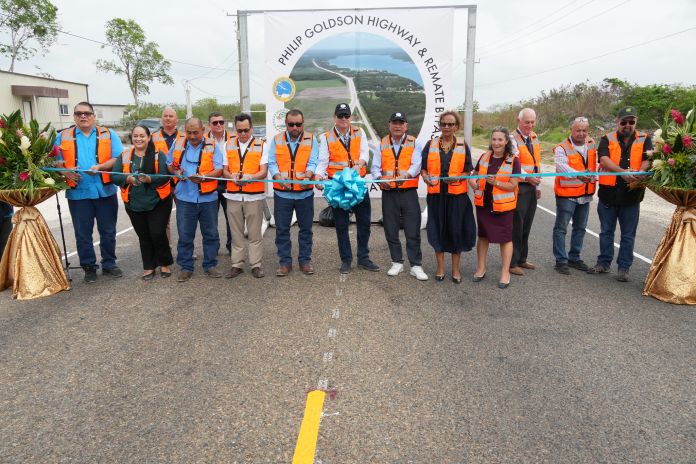BRIDGETOWN, Barbados – The transformative power of a safe and reliable road network for travel and commerce is evident with the completion of upgrades to the Philip Goldson Highway and Remate Bypass in Belize. Road users can more comfortably access schools, healthcare, and other services while pedestrians, motorists and cyclists experience an increasingly efficient journey through the northern districts.
The Philip Goldson Highway and Remate Bypass Upgrade project in Belize is a major success story for the Caribbean Development Bank (CDB/the Bank) and its partners, the United Kingdom Government financiers of the UK Caribbean Infrastructure Fund (UKCIF). It is expected to significantly contribute to the socio-economic development of urban and suburban communities.
More than just a road
This was more than repaving a highway. The US$46 million project transformed 125 kilometres of road from Mile 24.5 in Biscayne Village to the north, a critical route that connects Belize City to the Mexican border, changing the lives of over 45,000 residents of Corozal, Orange Walk, and neighbouring communities. Enhanced connectivity, accessibility, and a boost in economic activity are some of the anticipated benefits. The upgraded roadway means the surrounding community has more convenient access to employment, education, health services, as well as social and recreational activities.
Less flooding and safer roads for communities
The climate-resilient road now safeguards the communities from noticeable changes in weather systems. The raised roadway in swampy areas and the improved drainage systems help alleviate flooding in storm- and hurricane-prone Belize. Residents such as Wilfrido Medina from Patchakan Village, Corazol, appreciate the reduced flooding.
“We had an amount of flooding happening. That is because the infrastructure was not in place, and the drainage system was not in place. With the newly built road, this could be mitigated a lot.” Medina said. Adding that “Before the upgrade, there were also less signs on the roadsides, we were lacking pedestrian ramps, especially by the schools, and by the clinic where most of the people cross that road.”
New signage, pedestrian crossings, and sidewalks emphasised the strong focus on improving road safety. Prior to this, the Bank successfully completed two road safety projects also intended to reduce deaths and serious injuries associated with road traffic accidents by providing infrastructure and promoting awareness and education. This new milestone further increases road safety with added resources including cycle paths on road shoulders at all village locations.
Giannie Gomez, acting principal at Escuela Secundaria Technico Mexico, is happy with the secure waiting areas for buses now accessible to students.
“I enjoy seeing when I am observing students leaving or teachers leaving that they have a little area or space where they can sit and wait. In the past, we would have students just waiting by the highway, which can be a danger for them, so now we have that little bus area where students are safe while waiting for a bus,” said Gomez.
CDB’s commitment to Belize’s development
The bank has a longstanding relationship with the government of Belize. The project is part of CDB’s larger portfolio supporting Belize’s development, with over US$554 million invested across various sectors including agriculture, forestry, fishing manufacturing, tourism, water, transportation, housing, health and sanitation, energy, and education.





